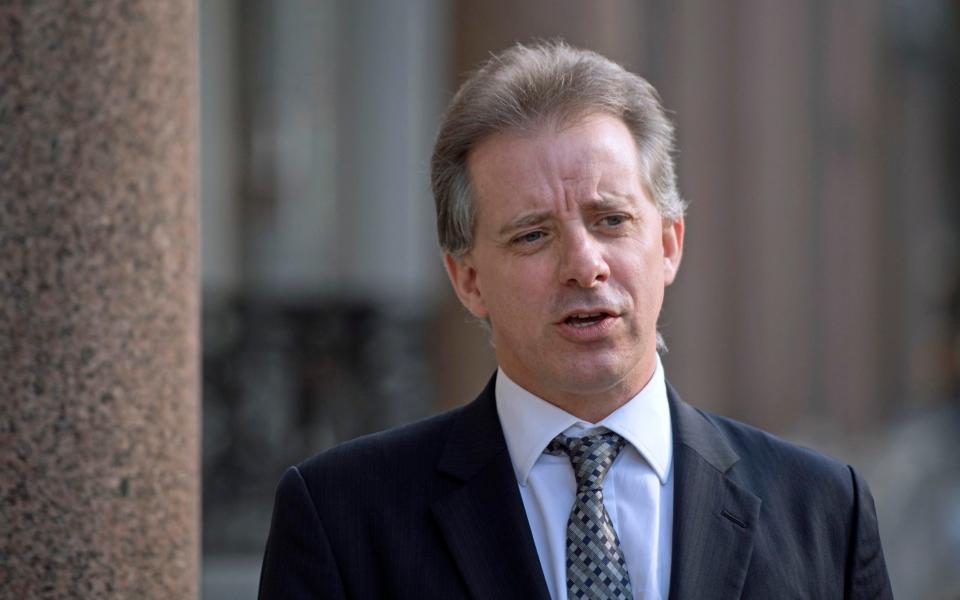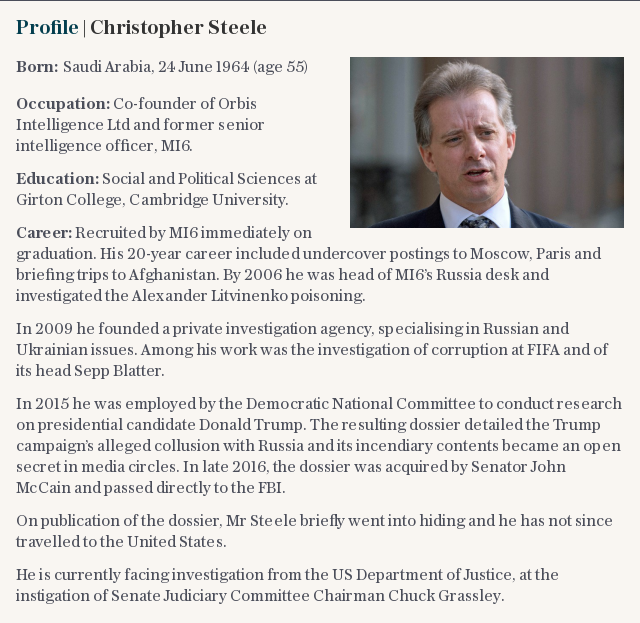UK 'encourages' Russian adversaries by displaying 'wholly inadequate' response to online threats

The UK is responsible for “encouraging” Russian adversaries by displaying a “wholly inadequate” response to online threats, a former MI6 officer has said.
Christopher Steel, who wrote the 2016 dossier about alleged links between Donald Trump and Russia, accused Britain of “not catching up quickly enough” with the vulnerabilities created by modern technology which are then ‘exploited’ by the Russians.
“Retaliation has been wholly inadequate to this new phenomenon, this new threat to our way of life which has encouraged them on,” Mr Steele said.
“It’s encouraged the hawks in the regime to push for more interference rather than less.”
Mr Steele added that the UK had “been generally behind the curve” due to the fact “the threat and the way it’s carried out has been two steps ahead of everybody else”, however conceded that “it’s a difficult thing to counter because it’s often done remotely”.

In an interview with Tory MP Damian Collins on the Infotagion podcast, Mr Steele added that Russian influence “is not being properly countered because of a lack of experience and imagination”.
He concluded there was potentially “a lack of skill in the core institutions of government where there’s been a lot of brain drain, if you like, of people out of government, out of the intelligence services and diplomacy, because they’re moving into the private sector”.
Tobias Ellwood, Chairman of the Defence Select Committee, said: “The government should listen to Mr Steele”, who was highlighting “the changing character of conflict”.
“It’s all constant political competition beneath the threshold of full out military engagement,” Mr Ellwood told The Daily Telegraph.
“He’s right, we aren’t adapting quickly enough to the consequence of how these threats affect our lives. It’s no longer just about building up conventional capabilities but shorter war operations.”
He cautioned that misinformation campaigns, political interference, cyber theft and breaches of cyber security were “all things to cause our economy and society to question its own confidence”.
“Subversion is something we haven’t focused on, we’ve focused more on the heavy blue on red encounter, rather than the clandestine, less attributable attacks that are happening on a daily basis and we need to get better in building resilience in these areas.”

Mr Steele said that Russian interference is "designed" to push political debate to the extremes in order to undermine people's "faith and trust" in democracy, adding Brexit was a clear example of how divided the country has become on what used to be consensus issues.
"I'm very concerned (in ensuring) national security issues can be bipartisan, and that we can keep our politics moderate and mainstream, for the most part, despite Russia and other foreign actors' attempts to polarise us."

